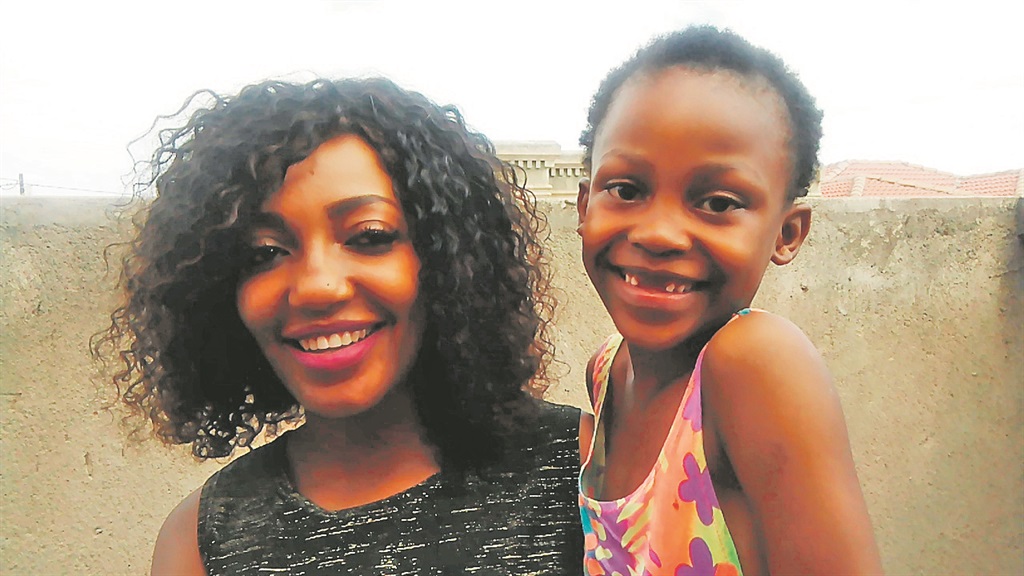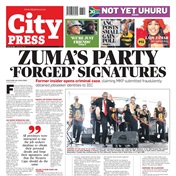
Warning: The poor may resort to street protests for nothing else but to have food to eat.
This is according to the Pietermaritzburg Agency for Community Social Action (Pacsa), a social justice and development nongovernmental organisation which collects and analyses data on the impact of food prices on low-income households.
Pacsa has accused government of being reckless by increasing value-added tax (VAT) to 15% on food, because it does not regulate prices and therefore cannot accurately predict the negative impact it will have on poor households.
The increase came into effect last Sunday, and is government’s attempt to boost its coffers by at least R22.9 billion after the SA Revenue Service announced a tax collection shortfall of R48.2 billion.
The VAT increase, coupled with the 52 cent per litre hike in the fuel levy, is exacerbating the dire situation the poor already face.
A fuel price increase always has a ripple effect on the price of goods and services. In addition, government cannot regulate oil prices.
Pacsa’s advocacy and research manager, Julie Smith, said women in particular were absorbing much of this expensive food stress in their bodies, because they gave what they should be eating to their children and were falling ill due to malnutrition.
“When we see service delivery protests, they’re not around food costs, but water, electricity and other government services. But, we’ll see more overt protests about putting food on our tables. There will be a point when people react because wages are not increasing, there are no jobs and the social grants are just not enough,” she said.
Although government seemed to be bowing to civil society pressure when it announced it would be reviewing the list of VAT-exempted foods, must-have items such as school uniforms, sanitary products, soap, medicines, electricity and airtime are unlikely to become zero-rated.
Currently on the list are 19 food items, including mealies, rice, brown bread, eggs, milk, vegetable oil, lentils and tinned pilchards.
Not included are polony, chicken, tinned foods and flour, which are staple foods for many.
Isobel Frye, director of the nonprofit Studies in Poverty and Inequality Institute, supported Pacsa’s statement about the likelihood of food protests.
REVOLTS
“Globally, revolts around food prices have started,” she said.
“There are devastating reports indicating that poverty increased significantly in South Africa between 2011 and 2015,” said Frye.
“One in four people cannot afford to buy food and this indicates that poverty isn’t the priority in the country. What do we mean when we say we’re serious about resolving poverty?”
In its report dated March 5, Pacsa states: “The South African government does not regulate food prices, nor does it control the crude oil price. It should not tax what it cannot control.
“In this context, instituting an increase in VAT on a good that government has no control over – and which in the past three years has proved to be highly volatile, if not wildly unpredictable (and damaging), and given the special and critical role food plays in our health and for all our developmental outcomes and social stability, more so in the context of rising poverty and substantial underspending on food – is very reckless.”
Pacsa said it had been warning over the past few years that South Africa was fast approaching a tipping point where widespread hunger riots and food protests could emerge.
According to the report, the food value chain is controlled by few oligopolies who do not compete on prices, which therefore remain high.
It states that government’s limitation in controlling food prices is due to the fact that the agriculture industry is exposed to droughts, biological and environmental risks and is in the hands of few farmers who are generally indebted.
Low-income-earning households, says Pacsa, are not going to be able to cope and escape the VAT increase because the fundamental problem is that food is expensive and South Africans face a “food affordability crisis”.
Before the VAT increase, households were not prioritising buying food in order to make ends meet. They are differentiating between non-negotiable expenses and those expenses they have some measure of control over.
For example, households prioritise:
. Transport (to get to work to earn a wage and to take children to school);
. Electricity (most staple foods need to be cooked, to keep the lights on, to keep warm and, very important in South Africa, for security);
. Education (so children can have a brighter future);
. Burial insurance (so that at least in death there can be a semblance of dignity); and
. Repayment of debt as this is essential for securing credit in future.
“Food is not prioritised. The food budget arises out of the money left over only after other non-negotiable expenses have been paid,” Pacsa says in the report.
This means that, for many households, the food budget is low and households underspend on this category.
Food often runs short before the end of the month and women absorb these shortfalls by taking on more debt.
Pacsa tracked 38 food items that working class households identified as those they would buy should they have enough money to do so.
It found that 20 out of the 38 foods were not VAT exempted. The remaining 18 were zero-rated.
“Of the total cost of the food basket of R3 129.84, a 15% VAT component is R221.59. The total contribution of VAT to the overall Pacsa food basket is 7.08%. Vatable foods contribute R1 698.87 or 54% to the total cost of the Pacsa food basket. The trend, therefore is that as food prices increase and the affordability crisis deepens, foods subject to VAT make up a larger portion of the monthly household food basket.”
Nonhlanhla Mdaka (28) makes a living from selling clothes, weaves and wigs she buys in Johannesburg and Maputo.
Mdaka, from Tekwane South outside Mpumalanga’s capital city, Mbombela, also has a small tuck shop where she sells fish and chips.
On a good month, her businesses bring her R6 000 profit. When things are slow, she makes R4 000.
Most South Africans are worried about the high costs of goods including food, even more so given the VAT increase from 14% to 15%.
Mdaka lives with her seven-year-old daughter and her mother and worries about two things.
Her first is losing customers due to the increase she has to pass on to them to keep her businesses afloat. The second is how she will tighten her belt because her income will dwindle.
“I can’t sommer so [just like that] increase my prices without warning my customers. I have to give them notice that the prices will increase, otherwise I’m going to lose them.”
Mdaka said she would give them three months’ notice.
“I’ll be running my business at a loss, but it will be worth it. However, I’ll also need to make some adjustments to my own budget.”
One option is to select no-name brands when she buys groceries and to stop buying some of the things she can live without. Mdaka’s daughter is seven and in Grade 2.
“It’s still early days, but I can forsee that I must stop going out, for example, and decide what food items I’ll cut out completely. My daughter still has to go to school and eat. It’s going to be tough,” she said.
Thembi Mokoena is a 56-year-old Mpumalanga schoolteacher who takes home R9 000 a month.
She is the sole breadwinner in her Tekwane South home, near Mbombela.
She is responsible for taking care of her six grandchildren who live with her. Their parents are unemployed.
The elder ones – a 10 year old and a 13 year old – go to a private school in Mbombela, which is about 30km away.
She works in Pienaar, about 20km from her home. Their transport costs R1 800 a month.
The grandchildren get juice for a whole month, Mokoena said, and other food items such as polony and cornflakes that she can afford – albeit not comfortably.
The one percentage point VAT increase is going to hit her pocket very hard, Mokoena foresees when she heads out this weekend to buy groceries for the first time since the hike came into effect since then finance minister Malusi Gigaba announced it in his budget speech in February.
Mokoena spends R3 500 a month on groceries.
“I think I’ll just buy basic food. And, if juice is finished before month end, we’ll drink water.”
As it is, Mokoena needs a car, but cannot afford one because she has too many responsibilities.
“I have no other income. The salary will stay the same, but VAT will increase. It’s just not fair.”
TALK TO US
How do you plan to cope with the VAT hike, and the increase in prices of fuel and food?
SMS us on 35697 using the keyword VAT and tell us what you think. Please include your name and province. SMSes cost R1.50




 Publications
Publications
 Partners
Partners








